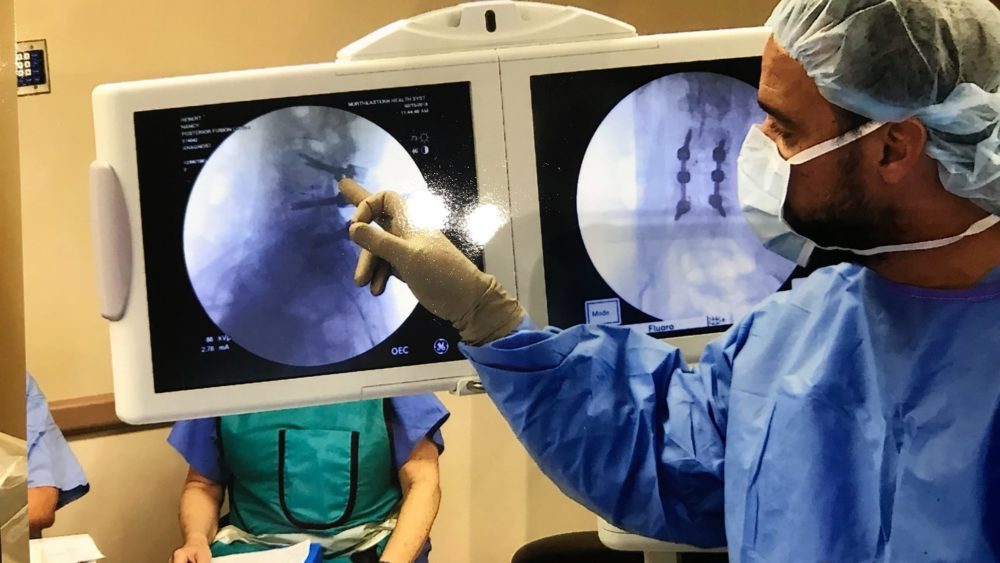January 30, 2019
The field of medicine and surgery requires adaptation and improvement at every level. This requires a daily commitment to improving the quality of care for patients through new techniques and new technologies. We build on the old techniques and improve them constantly in order to do what is best for our patients.
Surgery certainly fits with this mantra. New cutting-edge techniques, ideas, and treatments are without question the cornerstone of improved patient care. For example, not long ago, gallbladder surgery was performed too long incisions with long operative time and long hospital stays. With the development of laparoscopic technology, this lifesaving operation is now performed through two small incisions, with very short operative time, and usually as an outpatient basis with no hospitalization required. This new technique of laparoscopic gallbladder surgery is the gold standard of care. It seems obvious that every surgeon would want to have adopted this new surgery immediately. However, the truth is, this road to improvement, was instead met by the medical community with antagonism, strife, and criticism.
The adoption and perfection of these new techniques of cutting-edge healthcare require dedication and commitment from doctors and surgeons who are willing to ride to the storm of criticism of new technologies in order to do what is best for patients. The same types of criticisms have evolved over and over again in the medical communities throughout the country despite what is now known to be such obvious improvements in patient care.
Another example of this, his arthroscopic knee surgery. This is better known to some people as a knee scope. Not long ago, knee surgery was performed through large open incisions which were very traumatic to the patient. Many of these patients were high-end athletes who could never return back to their athletic careers not just due to the injury, but due to the treatment and trauma of such invasive surgeries.
Arthroscopic knee surgery is of course now the gold standard. But, in the early days of its inception and introduction, it was met with antagonism and severe criticism by those surgeons who could not accept or did not have the skill to perform these new high-level procedures. Thus, the old guard surgeons and doctors were threatened in many cases by the new improvements and techniques of new and evolving technologies.
These new techniques of minimally invasive spinal surgery have also been met by many of the old guard surgeons with criticism and skepticism just like the examples above. In addition, with recent financial stresses of healthcare not only for patients but also from doctors, these new spinal procedures have been met with criticism by many doctors because it is less expensive to perform. Thus, some doctors are unwilling to adopt new cutting edge technologies because there is simply less money to be made doing these procedures compared to older, more invasive procedures.
I strongly believe that better healthcare should not be solely decided on financial reimbursement. I have dedicated my career to promoting the advancements of minimally invasive spinal surgery that helped thousands of patients. As with any new technologies, word-of-mouth from patient success stories will create a successful practice for any surgeon willing to do what is right.
The other way that we prove the benefits of these new emerging technologies is through statistical data. It is hard to argue with patient
Why is this so important? Well, it turns out that many of the Tulsa, Oklahoma surgeons were not happy with the emergence of this new technology due to the fact that these new procedures were less lucrative for the surgeon. Instead of adopting all of the benefits of Minimally Invasive Spine procedures for their patients, these surgeons chose to attack this new technology and the surgeons who performed it. These surgeons launched a vicious campaign of terror against this new technology which threatened their status quo and financial gains. The LaPolla data report contains irrefutable fact proving the benefits of minimally invasive spine surgery for patients. Educating the public, so that the patient can make their own decision as to what type of care they want and is best for them, is critical. Patients should no longer sit back and do whatever the doctor tells them is necessarily best. Engaging patient input into the decision-making process is the cornerstone not only patient
Steven C. Anagnost MD
Minimally Invasive Spine Institute
Minimally Invasive Spine Specialist- Fellowship Trained



